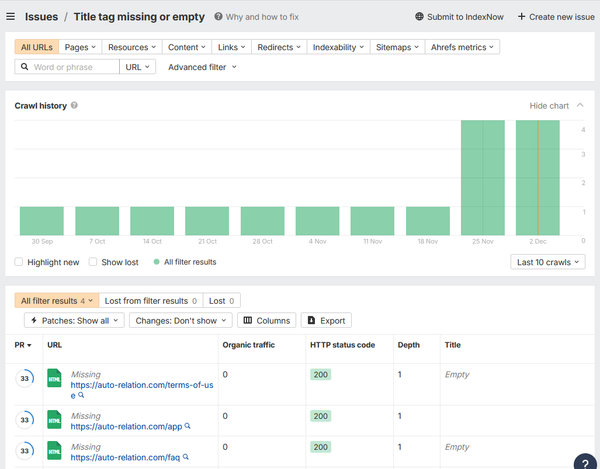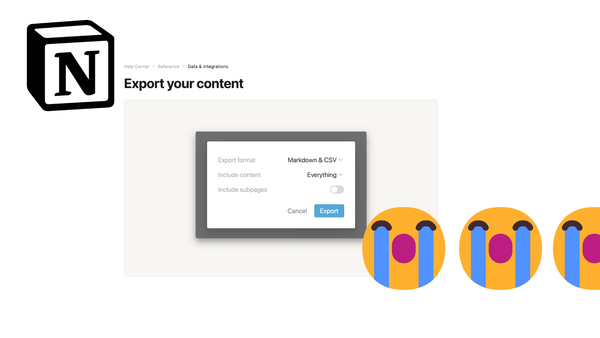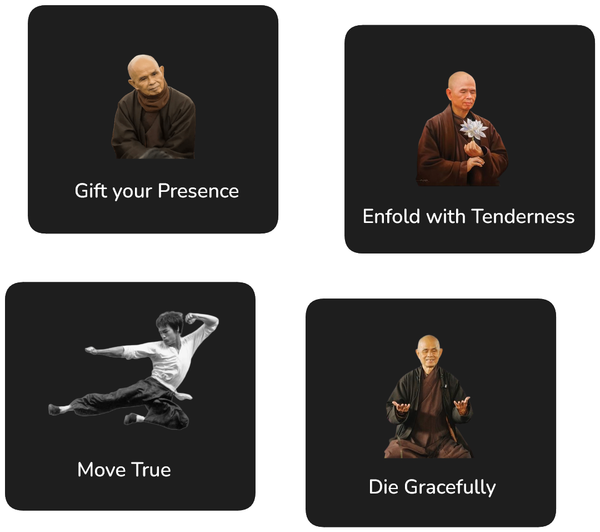Defining a Personal Purpose: A Practical Guide with Four Questions

I have already discussed the philosophical merits of defining our own personal purpose outside the context of the framework provided by traditional religions in the post Finding Purpose. In this post, I want to provide some more practical advice about how one might go about defining a personal purpose, vision, mission, and strategy.
The key value of a personal purpose lies in its ability to make our life purpose-filled. Research has shown that being filled with purpose can make us happier and overcome the hardships of life. For instance, one of the six key virtues identified by researchers in the field of positive psychology is to “seek deeper meaning”. However, to truly have a purpose filled life is easier said than done.
Firstly, I believe that purpose cannot simply be broken down into a simple sentence or two. Although that is precisely what I did a while ago as evidenced by my post My Life Goals. I summed up my ultimate life goal in one sentence:
To be in a position where I can provide the most benefit to the world given my abilities.
To be filled with purpose, I now believe, the purpose needs to be multidimensional and touch all layers of our life, specifically provide guidance to each of the following:
- Why: The deep values that define who we are.
- Who: The person we want to be.
- How: The way we want to go about achieving our purpose.
- What: The concrete aspirations we want to achieve.
In the following I will first describe the sources consulted to arrive at the above questions and then provide some guidance on how each question can be approached.
Background and Research
It can be very daunting to come up with a purpose, since there is an unlimited degree of freedom. Everything is possible; which makes finding something all the more difficult.
The article How to find your purpose -- and live it by Keith Yamashita that provides a number of questions that can guide us in discovering our own personal purpose. The questions Yamashita proposes are the following:
- How will the world be better off, thanks to you having been on this earth?
- What are your unique gifts and superpowers?
- Who have you been when you've been at your best?
- Who must you fearlessly become?
These reminded me of the hedgehog concept from the popular business book Good to Great by Jim Collins. The three questions central to the hedgehog concept are the following:
- What are you deeply passionate about?
- What can you be best in the world at?
- What drives your economic engine?
The first two questions here are pretty self-explanatory, but I think the last one merits some further explanation. Economic engine refers to something which enables a company to make a sustainable profit. For instance, for Google, that would be revenue from search advertising. In the context of a personal purpose, the economic engine would be what we could derive a regular income from to support us and our family.
A further angle often suggested for finding a purpose is to adopt a perspective from our future selves. Austin Kleon suggests starting each day by reading obituaries in his book Show your Work to remind us of the inevitability of death and motivates towards pursuing more meaningful things, even if they may be uncomfortable. Shirzad Chamine recommends in Positive Intelligence that we should imagine ourselves at the end of our lives and evaluate decisions we are to make here and now from that vantage point.
It is important to remember that when it comes to work we are getting paid for, purpose and passion should be sought with caution. As Erin Cech lays out in 'The Trouble with Passion: How Searching for Fulfillment at Work Fosters Inequality', being very passionate at work can lead to exploitation. For further reading also see the article 'Is Following Your Work Passion Overrated?'.
We need to be careful to not confuse our purpose with objectives, goals and aspirations. A purpose states why we do what we do, while objectives, goals and aspirations describe what we want to achieve. While it is possible to define a purpose without aspirations, I think it can be useful to look at both at the same time. This provides direction and validation for defining our purpose.
Guidance for Questions
As discussed above, I propose four questions to help us identify our purpose: Why, Who, How, and What. The following provides some direction about how we could go about answering each of them:
Why
The deep values that define who we are.
The question of why we exist is fiendishly difficult to answer. Thus, I recommend to start with the question of what it is we value most in life. This could be things such as:
- Our family
- The environment
- Animal welfare
- A religious belief
- Having a successful career
A question that may be even easier to answer is what it is we deeply enjoy doing. Chances are, we enjoy it because it links to our personal Why.
Who
The person we want to be.
By answering the question of who we want to be, we define our identity; which can provide us with valuable direction in making choices. We play many roles in life, thus we can choose more than one identity. Example identities could be:
- A loving husband
- A successful business leader
- An excellent programmer
- A good friend
How
The way we want to go about achieving our purpose.
The question of how defines our behaviours we achieve to adopt. Example behaviours could be:
- Be patient and loving
- Work hard and meet expectations
- Be fun and creative
- Be mindful
What
The concrete aspirations we want to achieve.
In the final question, we want to define some specific aspirations or objectives we want to achieve. These will likely change throughout our lives. Note that aspirations are different to concrete objectives, and both can be considered. The outcome of an objective should be clearly defined, and it should be possible to achieve. Aspirations, in contrast, may never be achieved. Instead, they provide us with direction. Example aspirations or objectives could be:
- (Aspiration) Have a family where everyone can rely on each other
- (Objective) Start a business
- (Aspiration) Become a proficient meditator
For a more in-depth discussion of aspirations versus objectives, see Tiny Habits: The Small Changes That Change Everything by B.J. Fogg.
Note that it is easy to mistake behaviours for aspirations and vice averse. Aspirations should describe future states we want to achieve. Behaviours are concrete ways of doing things we can directly employ in our every day life.
After having defined an initial set of answers for each of these questions, it is important to look at them as a whole and to ensure that the answers are coherent: our answers should not contradict but ideally complement each other. For instance, we should not seek to adopt a behaviour that is not in line with our values. Instead, our values should inform our behaviours and aspirations.
See some examples below of answers to the questions that align with each other:
| Value (Why) | Identity (Who) | Behaviour (How) | Aspiration (What) |
|---|---|---|---|
| Family | A loving husband | Be patient and supportive | Regular family holidays |
| Success | Respected professional | Keep abreast of latest trends | Present at a conference |
| Enlightenment | A wise teacher | Meditate | Attend a meditation retreat |
I have been on a quest to defining a purpose for myself for a long time, and I am certain that I have not reached the end of my journey. I found the four questions proposed here very useful in providing some guidance for defining a purpose. Often if someone creates a purpose statement, these are often answers to these questions in varying degrees; however, to look at the questions independently and then trying to create coherence between our answers is, I believe, an effective way to guide us in defining a purpose.





